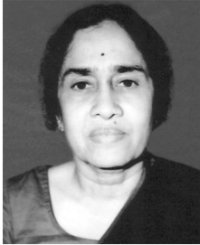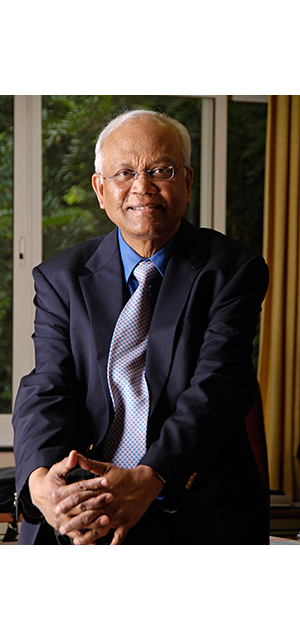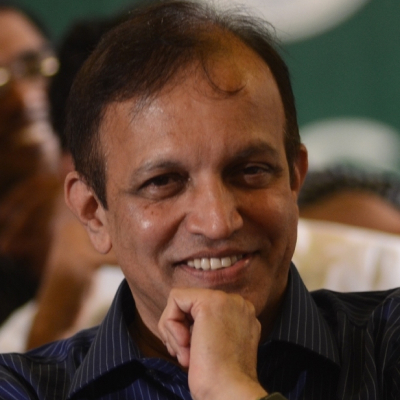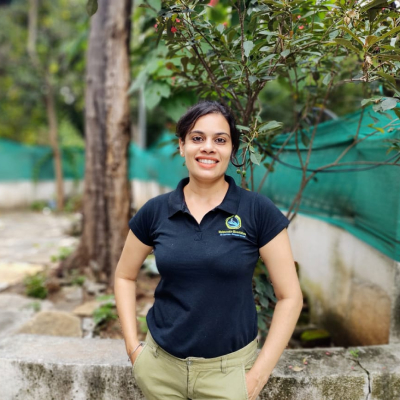Pic Source: Wikipedia www.ias.ac.in/womeninscience/kamala.html
-Dr. Deepti Sidhaye
When girls were mostly away from higher education and women were mostly confined to their homes, Kamala was the first Indian girl student to obtain Ph.D. degree in the discipline ‘Science’. Kamala was born in the academics- oriented Bhagvat family. Her father Narayanrao Bhagvat and her uncle Madhavrao Bhagwat were alumni of Indian Institute of Science (IISc) in Bangalore which was at that time called Tata Institute of Sciences. One of Kamala’s sisters Durgabai Bhagvat went on to become a highly respected writer and scholar in the literary circles.
Kamala had a liking for science since childhood. She was an intelligent and hardworking student and always topped her class not only in her schooldays but also when she earned BSc degree from the Bombay Presidency College. She decided to follow the footsteps of her father and uncle by joining IISc for Masters. Little did she know that time that this decision of hers will prove to be a turning point not only in her life but also for all the future women science doctorates.
Kamala and her father visited IISc for the admission but were informed by the Head of the Institution that girls were not admitted for PhD in IISc. The Head of the Institution was none other than Prof. C. V. Raman who had won Nobel Prize for the discovery of Raman Effect. An ordinary girl would have given up her dreams after being denied admission. But Kamala was not an ordinary girl. She was a spirited and determined person and on learning that the reason for denial to admission was ‘incompetence’ in girls, she decided to demonstrate her resistance through the nonviolent method of ‘satyagraha’. On seeing her determination, she was granted admission but the nature of the admission was ‘on probation’ or ‘conditioned’. She had to ensure that she worked very hard even at nights if need be and would not ‘spoil’ the environment of the lab. Although the conditions were insulting to Kamala, she decided to bite the bullet. She had always been very sincere and dedicated about her work but here she vouched to work doubly hard to fulfil the challenge. She used to work in the laboratory of knowledgeable and strict teacher Sreenivasayya from 5 am to 10 pm and then study in the library. Her only respite was some time in the evening when she played Tennis. Her hard work paid off and after a year, she was accepted as a regular researcher in Biochemistry. As expected, she performed exceedingly well and completed her Masters with Distinction. This was not just a personal victory for Kamala. This ‘small step’ proved to be ‘giant leap’ as it paved the way for admission of girls in the IISc. So it is obvious why Kamala has been recognized not only for her pioneering work in biochemistry but also recognized as a forerunner in the field of higher education for women.
Along with the completion of Master’s degree with flying colours, Kamala’s credentials won her a scholarship to do research in one of the most acclaimed international universities namely the Cambridge University, UK. Even here, she became the first woman recipient of the scholarship offered by Bombay Presidency [1]. In 1937, Kamala began her research work in Cambridge in the laboratory of Dr. Derek Richter and then went on to work under Dr. Robin Hill. Kamala completed her PhD work in record break time and represented her work in a thesis of mere 40 pages! When the degree of PhD was conferred on her at Cambridge, she became the first Indian woman scientist to earn a PhD degree. Kamala won fellowships and was able to work under Nobel Laureate F. Hopkins.
Because of her expertise, Kamala received many offers for jobs but she decided to work in India. After serving as Professor and Head of the newly started Department of Chemistry of Lady Hardinage College in New Delhi and as an Assistant Director of the Nutrition Research Lab of Coonnor, Kamala eventually joined as Professor in the newly started Institute of Science in Bombay (Mumbai). After few years, she became the first woman Director of the institute.
Kamala Sohonie’s research work- Science for social cause:
Kamala worked on diverse entities in her research life. But the common thread in her diversified work was that it addressed social causes. In that sense, her research was ‘application oriented’. Few highlights of her vast research work would be the work on pulse proteins during her Masters at IISc followed by work on the enzyme ‘cytochrome C’ during PhD, her work on vitamins, legume proteins in her later career or her work on Neera which won her a Rashtrapati medal.
As mentioned earlier, her foray into research was while doing her Masters in IISc where she studied three prominent sources of proteins in Indian diet namely milk, pulses and legumes [1-3]. In fact, she was the first person to study pulse proteins. This was the beginning of a fruitful research career where the central theme would be its social relevance.
Her ground-breaking streak continued during her doctoral research [4] as she had the distinction of isolating and purifying a plant enzyme called Cytochrome C for the first time. Even though this particular enzyme was isolated during her work on potatoes, it was found that every plant tissue contained it. This universality made her work more significant. Cytochrome C is found in the mitochondrial membranes. It is highly water soluble and acts like an electron transporting shuttle in the in the oxidation-reduction process as part of the respiratory chain in plant tissues. It is a hemeprotein. The iron atom in it converts from ferrous to ferric state causing oxidation-reduction of the enzyme. This work showed that that the processes are the same in plants and in animals.
Nutrition of common people remained her focus even during her tenure at Institute of Science. In addition to pulse and legume proteins, she also studied the biochemistry of paddy. She was an advisory for nutritional ventures such as Aarey milk products
One important part of her research work was regarding usage of Neera [5] for the cause of eradicating malnourishment among tribal children. Neera is sometimes called palm inflorescent sap or palm nectar. As the name suggests, it is sweetish translucent sap extracted from inflorescence of palm trees. It is in rich in vitamins and minerals and hence can serve as an easily available nutritional drink in tribal areas. Thus again, her research offered a practical solution for a societal problem.
In her entire life, she continued to pursue pioneering research work relevant to the daily life of common man. Ironically, she breathed her last during ceremony organized by Indian Council of Medical Research (ICMR) in order to commemorate her research work. It is said that we see further by standing on the shoulders of giants. Kamala Sohonie along with torchbearer women scientists like Janaki Ammal, Asima Chatterjee etc are metaphorically such giants on whose shoulders, all the women scientists from India are standing. Kamala Sohonie will be remembered forever as a pioneering scientist who devoted her research work to address social causes.
References:
1. K Bhagvat and M Sreenivasaya, The non-protein nitrogen of pulses, Biochemical J., Vol.29, pp.909–913, 1935.
2. K Bhagvat and M Sreenivasaya, A dilatometric method for studying the “in vitro” digestibility of milks, Proceedings of the Indian Academy of Sciences, Vol.2, pp.316–321, 1935.
3. K Bhagvat and M Sreenivasaya, The non-protein-nitrogen of pulses: Partitioning of the nitrogen and a determination of the essential amino-acids, Biochemical J., Vol.30, pp.1416–18, 1936.
4. K Bhagvat and R Hill, Cytochrome oxidase in flowering plants, Nature, Vol.143, p.726, 1939.
5. M N Guttikar and K Sohonie, Stability of vitamin C in Neera from datre Palm at 37 deg Celsius, Current Science, Vol.21, pp.137–138, 1952.
Acknowledgements:
Vasumati Dhuru for her Marathi article in Loksatta (18th June 2016) and English article in the book Leelavati’s Daughters edited by Rohini Godbole and Ram Ramaswamy and published by Indian Academy of Science (2008).

Book on nutrition by Kamala Sohonie
(All rights reserved. This article is a joint property of Dr. Deepti Sidhaye and S&T Digital. No part of this article may be reproduced or used in any manner without written permission)






Wow.
Thank you, Nice!